-
 +3 +1
+3 +1Artificial turf potentially linked to cancer deaths of six Phillies ball players – report
A report on a possible link between a rare brain cancer that killed six professional US baseball players and toxic chemicals in artificial turf is raising a new round of questions over whether synthetic sports fields pose a health threat to athletes and others who use them.
-
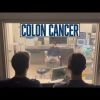 +22 +3
+22 +3Colon Cancer
-
 +25 +4
+25 +4Over 500 Marilyn Monroe look-alikes flock to Adelaide beach, raising $200,000 for cancer research
The 10th annual Marilyn Jetty Swim has reached a fundraising milestone, raising $1 million for cancer research.
-
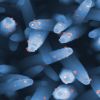 +19 +7
+19 +7A Simple Urine Test Could Detect Brain Tumors
Researchers in Japan have developed a new device to identify proteins – which are diagnostic biomarkers of brain cancer – in urine. The study is published in ACS Nano.
-
 +4 +1
+4 +1Harvard study reveals how many times men should ejaculate each month to stay healthy
A Harvard University study has pinpointed the precise number of times men should ejaculate each month in order to stave off certain harmful diseases. Research published in the journal European Urology has indicated that high levels of sexual activity can reduce the risk of contracting prostate cancer.
-
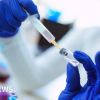 +20 +3
+20 +3Cancer mRNA vaccine completes pivotal trial
Researchers say they have successfully completed a trial of a personalised cancer vaccine that uses the same messenger-RNA technology as Covid jabs. The experimental vaccine, made by Moderna and MSD, is designed to prime the immune system to seek and destroy cancerous cells. Doctors hope work such as this could lead to revolutionary new ways to fight skin, bowel and other types of cancer.
-
 +3 +1
+3 +1Brain cancer vaccine succeeds at prolonging survival in Phase 3 trial
A Phase 3 trial for Northwest Biotherapeutics’s DCVax-L vaccine extended survival in patients with gliobastoma for many months, or in some cases, years: according to new data.
-
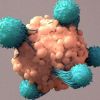 +24 +3
+24 +3New CRISPR cancer treatment tested in humans for first time
Past studies have used the gene-editing technology CRISPR to remove genes from immune system cells to make them better at fighting cancer. Now, PACT Pharma and UCLA have used CRISPR to remove and add genes to these cells to help them recognize a patient’s specific tumor cells.
-
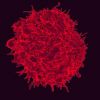 +25 +4
+25 +4Experimental cancer vaccine shows promise in animal studies
An experimental therapeutic cancer vaccine induced two distinct and desirable immune system responses that led to significant tumor regression in mice, report investigators from the National Institute of Allergy and Infectious Diseases (NIAID), part of the National Institutes of Health.
-
 +24 +2
+24 +2Breakthrough in production of cancer-treating drug
Found naturally only in a single rainforest tree species, the compound can now have expanded availability for research and clinical uses.
-
 +15 +2
+15 +2Radioactive implant wipes tumors in unprecedented pre-clinical success
Engineers at Duke University have developed a novel delivery system for cancer treatment and demonstrated its potential against one of the disease’s most troublesome forms. In newly published research in mice with pancreatic cancer, the scientists showed how a radioactive implant could completely eliminate tumors in the majority of the rodents, demonstrating what they say is the most effective treatment ever studied in these pre-clinical models.
-
 +12 +3
+12 +3Vaccines to treat cancer possible by 2030, say BioNTech founders
Uğur Şahin and Özlem Türeci say mRNA Covid vaccine technology could be repurposed to help destroy cancer cells.
-
 +17 +3
+17 +3The Race to Make a Vaccine for Breast Cancer
Scientists are working on vaccines that train cells to see tumors as foreign, in hopes of one day making breast cancer preventable.
-
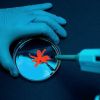 +27 +5
+27 +5Genetically engineered, cancer-killing herpes virus may be able to fight tumors
Genetically engineering viruses to create an injection that can treat cancer is the aim currently being pursued by a number of different laboratories around the world.
-
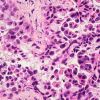 +17 +2
+17 +2Genetic test for cancer is less accurate for Black and Asian people
A study of genetic test results used to guide cancer treatment found that Black people had their tumours misclassified twice as often as white people
-
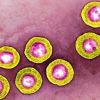 +21 +4
+21 +4Cancer-killing virus shows promise in patients
A new type of cancer therapy that uses a common virus to infect and destroy harmful cells is showing big promise in early human trials, say UK scientists. One patient's cancer vanished, while others saw their tumours shrink. The drug is a weakened form of the cold sore virus - herpes simplex - that has been modified to kill tumours.
-
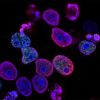 +9 +2
+9 +2Researchers explore use of light-activated treatment to target wider variety of cancers
Chemotherapy drugs can be lifesaving – but they don’t work for all patients or for all cancers. That’s why a team of researchers at the University of Toronto Mississauga is looking at new ways to use special types of light to target cancer cells resistant to current drug therapy – an approach that might be easier on some patients than traditional chemotherapy.
-
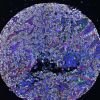 +11 +1
+11 +1Drug Turns Cancer Gene Into ‘Eat Me’ Flag for Immune System
Tumor cells are notoriously good at evading the human immune system; they put up physical walls, wear disguises and handcuff the immune system with molecular tricks. Now, UC San Francisco researchers have developed a drug that overcomes some of these barriers, marking cancer cells for destruction by the immune system.
-
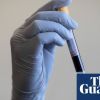 +15 +3
+15 +3Blood test spots multiple cancers without clear symptoms, study finds
Doctors hail new era for cancer screening as major research shows effectiveness of Galleri test
-
 +21 +4
+21 +4This experimental drug could change the field of cancer research
A tiny group of people with rectal cancer just experienced something of a scientific miracle: their cancer simply vanished after an experimental treatment. In a very small trial done by doctors at New York's Memorial Sloan Kettering Cancer Center, patients took a drug called dostarlimab for six months. The trial resulted in every single one of their tumors disappearing. The trial group included just 18 people, and there's still more to be learned about how the treatment worked. But some scientists say these kinds of results have never been seen in the history of cancer research.
Submit a link
Start a discussion




















